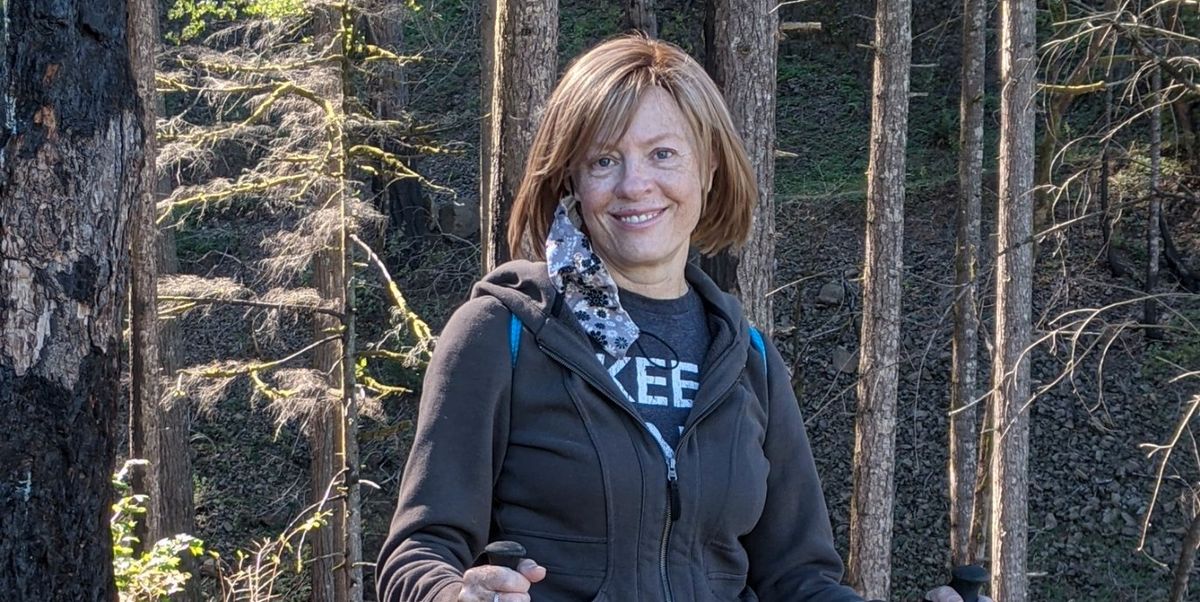
“There is a suspicious mass on your pancreas that looks like cancer.
From my experience as a health writer, I already knew that pancreatic was one of the deadliest types of cancer I could have.
Pancreatic cancer is the third deadliest cancer in the United States.In addition, most common blood tests don’t detect pancreatic cancer.I felt that our daughters, ages 17 and 21, were still too young to lose their mother without it leaving a permanent scar.
Since my diagnosis, I’ve learned more than I ever expected about cancer treatment and how critical it is for us patients—not just our doctors—to take active roles in our own healing journeys.
The most effective chemotherapy regimen for pancreatic cancer is a rigorous one called FOLFIRINOX that lasts for three days at a stretch.When I wasn’t leaning over the toilet retching, I was researching pancreatic cancer to see if I could improve my odds of living.My research led me to make a bunch of lifestyle changes: I adopted a ketogenic diet, which some health researchers believe may help stop certain types of cancer from growing.
Maintaining hope also became a key part of my treatment.I also began searching online for pancreatic cancer survivors.
Not only had the cancer stopped growing, the tumor was actually shrinking.
Greg and I felt like we had just won the health care lottery.
With that, I was considered a stage 4, or “terminal” cancer patient.
This book opened the door to an entirely new world of unconventional cancer treatment and to patients who were working with open-minded doctors to direct their own care.
It’s actually part memoir, part geeky medical research by a London-based woman who survived stage 4 cervical cancer.
McLelland’s self-studied treatment includes using a cocktail of fairly well known, nontoxic, generic drugs and natural supplements to block cancer from growing.
Using these drugs to treat cancer instead of their originally targeted health conditions is considered “off label” use.
As I delved into this new world, I learned that many other medical professionals and researchers were also enthusiastic about the possibility of using so-called off-label or repurposed drugs to fight cancer.I felt a wave of newfound hope: Could patients like me actually beat back a deadly disease like pancreatic cancer with a handful of inexpensive, often-forgotten prescription drugs.My husband Greg and I both agreed that we didn’t want to look back later with regret and say, “If only we had tried those off-label drugs.” I consulted two other doctors, who both agreed that the off-label drugs I was considered were, indeed, safe.
Instead, I consulted Dave Allderdice, N.D., FABNO, a naturopath in my hometown who specializes in working with cancer patients.
With Allderdice’s help and Greg’s full support, I slowly added off-label drugs to my many daily supplements.Some of my fellow patients accessed these same off-label drugs a different way: through a group of experts that have organized themselves through a group called the Care Oncology Clinic (COC). Based in both the United Kingdom and the United States, these doctors’ primary goal is meeting virtually with cancer patients who want to try this experimental approach..Every month when I picked up the off-label drugs at our local pharmacy, I worried that my oncologist, Dr.A handful of fellow pancreatic patients I met on Facebook were also experimenting with off-label prescriptions and supplements.Other patients shared protocols that included dietary changes, cannabidiol, high-dose Vitamin C infusions, and complementary therapies like spending time in hyperbaric oxygen chambers and infrared saunas.
I felt like I had truly found my tribe.
After about a year of trying the off-label drugs for cancer, I felt the need to be honest with my oncologist.Li: “You know those off-label drugs we talked about, the ones you weren’t excited about?” I asked her?
Patients like me don’t have the luxury of waiting a decade or more for clinical trials to finish.But here’s what I kept reminding myself: Stage 4 cancer typically is a death sentence?There is no such thing as stage 5.
Ideally, of course, patients would wait for drug or other treatment regimens to go through exhaustive clinical trials and become part of the standard treatment for their cancer.But pancreatic patients like me—and many others with fast-moving cancers—simply don’t have the luxury of waiting a decade or more for clinical trials to finish and report their results.
Besides that, there is the possibility that unusual approaches like using off-label drugs, cannabis or natural supplements may never get the public attention they might rightfully deserve.And if oncologists like mine are suspicious of using anything besides chemotherapy or radiation, how will patients ever learn about other options.
To her great credit, she said she would never get insulted if I got better using drugs someone else had prescribed.
“And I do believe that stage 4 cancer patients should have a right to experiment with their own care.”.
I’ve now been taking my cocktail of off-label drugs and natural supplements for more than two years.If I’m fortunate enough to live for two more years—to the five-year survival mark—I’ll be one of only 10 percent of pancreatic cancer patients to survive that long.
I have repeated that same phrase to myself throughout my pancreatic cancer journey